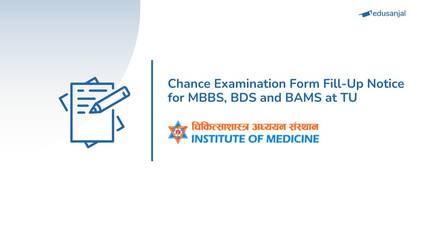At a time when various student unions are accusing Tribhuvan University (TU) for switching to a semester system without due preparations, a report from the university shows that the students under the new system are performing relatively better than their colleagues under the annual system.
The report made public on Monday states that the success rate of different faculties under the university has more than doubled under the new system. The pass rate in the Master’s level under the semester system has escalated to 75 percent compared to 34 percent under the yearly system. Starting last year, the TU had launched semester system in 32 of its central departments.
TU officials say the mandatory provision to have 80 percent attendance for students and the regulation of teachers are seen as contributing factors for improvement. In addition, the practical based curriculum and periodic assessment system too contributed to the overwhelming success rate.
The curriculum under the semester system has prioritised practical learning and an internal assessment on a monthly basis, unlike the yearly system which is highly theoretical without periodic assessment. The report shows that Buddhism studies has the highest pass rate with 100 percent results followed by Economics (87 percent) and Journalism (64 percent) while Sanskrit Studies has the lowest success rate under the faculty with 57 percent.
“Despite some lapses the semester system has fared well,” said Hira Bahadur Maharjan, vice-chancellor in TU, adding that the university will not carry the traditional annual system anymore. He further said that Nepal is among very few countries in the world to use the yearly system.
The TU has long been criticised for having high failure rates among all the universities in the country. According to a report from University Grants Commission, the government body to monitor universities in the country, Kathmandu University has the highest pass rate with 96 percent followed by Nepal Sanskrit with 60 percent and Pokhara and Purbanchal University with 50 percent each.
The TU has decided to expand the semester system to all of its constituent colleges in the Valley from next month and has called for applications from affiliated colleges if they wish to switch to the new system. The oldest varsity of the country, unveiling its five-year strategic plan last year, had announced to replace the yearly system in all constituent and affiliated colleges and make entrance examinations mandatory for admission in any of its colleges from 2017. Currently, TU has 61 constituent colleges and 1,111 affiliate colleges with around half a million students.
“There is no alternative to switching to the semester system. We ask all the student unions to cooperate,” said Guna Nidhi Neupane, registrar at the university. Fifteen student unions affiliated to ruling and opposition parties are against TU’s move to replace the yearly system claiming that the university does not have trained teachers and proper resources to adopt to the new system. They have been saying that the semester system will increase the cost, making it unaffordable to students with weak financial resources. The unions have also announced to disrupt the entrance examinations scheduled for next week.












